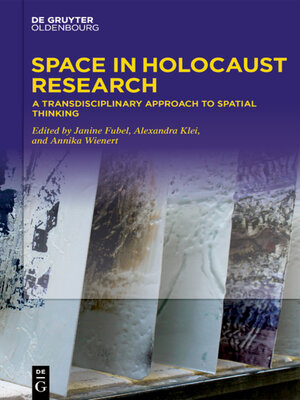Space in Holocaust Research
ebook ∣ A Transdisciplinary Approach to Spatial Thinking
By Janine Fubel

Sign up to save your library
With an OverDrive account, you can save your favorite libraries for at-a-glance information about availability. Find out more about OverDrive accounts.
Find this title in Libby, the library reading app by OverDrive.



Search for a digital library with this title
Title found at these libraries:
| Loading... |
In recent years, the issue of space has sparked debates in the field of Holocaust Studies. The book demonstrates the transdisciplinary potential of space-related approaches. The editors suggest that "spatial thinking" can foster a dialogue on the history, aftermath, and memory of the Holocaust that transcends disciplinary boundaries. Artworks by Yael Atzmony serve as a prologue to the volume, inviting us to reflect on the complicated relation of the actual crime site of the Sobibor extermination camp to (family) memory, archival sources, and material traces.
In the first part of the book, renowned scholars introduce readers to the relevance of space for key aspects of Holocaust Studies. In the second part, nine original case studies demonstrate how and to what ends spatial thinking in Holocaust research can be put into practice. In four introductory essays, the editors identify spatial configurations that transcend conventional disciplinary, chronological, or geographical systematizations: Fleeting Spaces; Institutionalized Spaces; Border/ing Spaces; Spatial Relations. Drawing on a host of theoretical concepts and addressing various historical contexts as well as different types of media, this book offers scholars and students valuable insights into cutting-edge, international scholarly debates.






